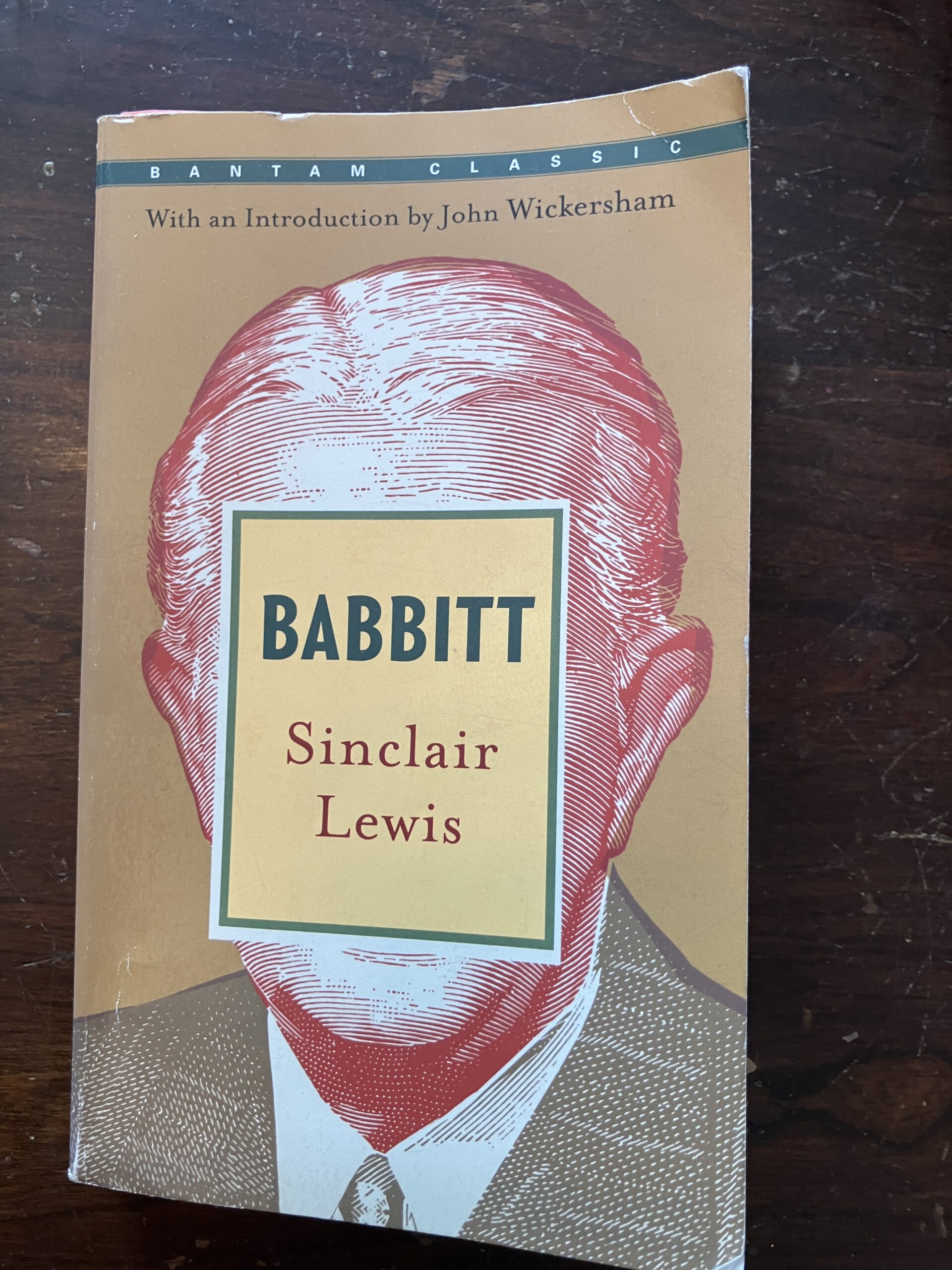by: Sinclair Lewis
Babbit was written in the 1920s by Sinclair Lewis who was a socialist. Normally, a socialist’s commentary on American culture from the 1920s wouldn’t interest me, but this book is part of the literature curriculum of a Catholic homeschool I respect, so I ended up reading it out of curiosity.
From the very beginning, I liked it. It’s a good satirical illustration of a very materialistic, phony, groupthink-y, sometimes hypocritical, upper middle class life. It could easily apply to our culture today and to both sides of the political aisle (and would probably include all income brackets now, too). In fact, this kind of book could have its own genre and include Fight Club and American Psycho.
George Babbitt comes to resent his conformist, acquisitive life. The back of the book reads, “Realizing that his life is devoid of meaning, he grows determined to transcend his trivial existence and search for greater purpose.” I’m not sure that’s accurate. I didn’t think he seemed to ever come to that realization. Rather, he just had a gnawing discontent that he couldn’t put his finger on. And I was never under the impression that he knew what he was searching for, aside from some hologram of youth that occasionally visited him in his dreams.
In fact, he tumbled back and forth between the trappings of “upstanding middle class” living to the trappings of the “debauch Bohemian” living, with neither satisfying him. I was worried for a time that the book was going to have a nihilistic ending. Happily, it did not, but it didn’t end with the finding of a greater purpose. He found a contentment, but not a greater purpose.
In truth, I thought it was a pretty good book but the very thing it was missing was “a greater purpose”. It remained entirely in the material. There was no one along the way to tell George Babbitt he could have both/and and that is exactly what he needed to discover. He needed to find out that he didn’t have to live a dichotomous life. He could be a good business man and still empathize with underpaid workers.
I would recommend this book as long as the reader bore in mind where it falls short, which is also where Fight Club and American Psycho fell short. In Babbitt, Lewis only presents material solutions to the emptiness Babbitt was feeling (though he included a church that Babbitt attended, it was as materially motivated as any of the businesses or the many clubs of which he was a member). There were no real metaphysical solutions presented. A true encounter with Christ would have given George Babbitt the eyes to see what was actually wrong with his life and how to go about fixing it.
Though, I must add, Lewis’s vivid painting of America in the 1920s (including dialect!) was excellent. I very much enjoyed dipping into that world over the course of reading this book.





0 Comments